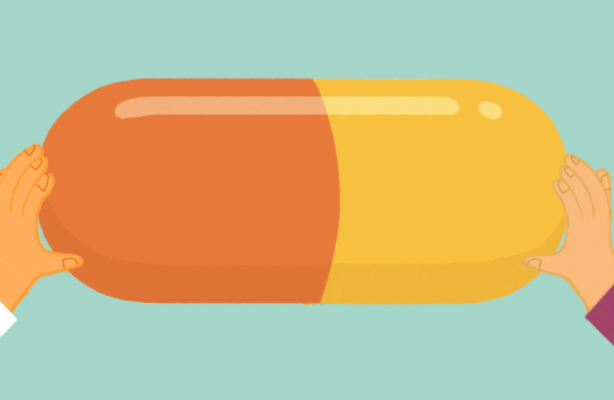
Why trials of autism treatments have a placebo problem
for Spectrum(For full story, click here)
What started as a seed of doubt in Leigh Merryday Porch’s mind had, by 2010, become a conviction. Her 18-month-old son, Callum, was delayed in his speech and motor skills. His hearing was perfect, but he often didn’t respond when spoken to. Merryday Porch’s family has a history of autism, and she finally realized that her son, too, has the condition.
Not one to sit on her hands, she simultaneously enrolled Callum in Florida’s early-screening process, found a developmental pediatrician and, as so many parents do, began looking into alternative therapies. A school librarian, she soon happened across a book on autism that mentioned the controversial Florida doctor Jeff Bradstreet. Bradstreet was a vocal critic of vaccines and a proponent of unproven alternative autism treatments such as chelation therapy.
Merryday Porch was aware that many people said Bradstreet’s remedies were nothing but placebos — inert substances that provide temporary relief (or seem to) only because people hope they will. She freely admits she was never terribly interested in science (she majored in English in college) and that she might not have been skeptical enough. But Bradstreet’s theories and treatments seemed above board. “You go to these websites and they look very science-y and very authentic,” she says. “I wouldn’t say I was convinced this was the answer, but I didn’t want to regret not looking into it.” She wanted to offer her son every chance to thrive. Because Bradstreet’s clinic was only a couple of hours’ drive away, she took Callum to see him.
Bradstreet espoused the theory that autism is linked to high levels of mercury — an idea that has been discredited but led to widespread mistrust of vaccines. He also said autism is related to immune function, an unproven theory that he told Merryday Porch might explain Callum’s case. He put Callum through a series of unusual tests — assays for fecal parasites, tests that purportedly measured free radicals in his blood (available only by sending samples to France) and many assessing Callum’s immune system — none of which turned up anything. Still, he prescribed a strict gluten-free diet and a host of supplements, including cod liver oil.
For six months, Merryday Porch went along with the therapies. Unlike many of Bradstreet’s clients, she wasn’t trying to ‘cure’ Callum’s autism, but rather improve a few of his symptoms, such as his lack of language skills. And at first, she was thrilled with the regimen. After taking cod liver oil, Callum, who rarely spoke, began happily naming characters he saw on television. Her expectation — her profound hope — that the treatment might work was buoyed. But even as her child seemed to be getting better, residual skepticism kept her from trying more involved, potentially harmful treatments. Doubts festered in her mind, aggravated by the fact that the same doctor prescribing the supplements was also selling them.
One day during an appointment, when Merryday Porch had to force her panicked son down on a table for yet another blood draw, she finally snapped. “Every instinct in me just told me: ‘Just get out of here and don’t come back,’” she says. So that’s what she did, giving up the pills and the diets for scientifically accepted treatments such as speech therapy. Bradstreet was eventually forced to leave Florida and then investigated by the U.S. Food and Drug Administration (FDA) for selling fraudulent autism therapies, in particular, one treatment — globulin component macrophage-activating factor — related to the tests he ordered for Callum. Soon after, he apparently took his own life.
Today, Merryday Porch says Bradstreet’s therapies were a waste of time and money, and that all Callum’s gains during that time were either in her imagination or the natural course of his development. If anything, she says, the treatments may have been detrimental. She is grateful she never went in for alternative therapies with strong side effects, although she says Callum — now 7 years old and a talkative, happy child — has aversions to certain foods thanks to Bradstreet’s diets. She runs a popular autism blog that often criticizes pseudoscience. Yet she empathizes with parents who go to doctors like Bradstreet. “It’s a placebo, but it’s a placebo for the parent,” she says. “The alternative is so much harder to accept: the idea that you’ve allowed yourself to be fooled.”